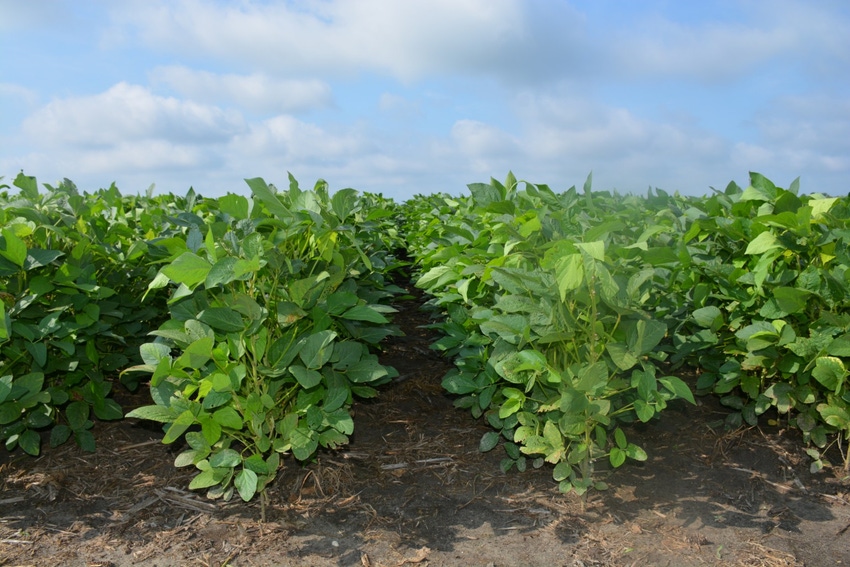
North Carolina soybean famers Derek Potter, Jeff Tyson, Forrest Howell and Bryant Jennings have all turned to new technology to remain competitive on the farm.
In an Ag Tech Talk video posted on the North Carolina Soybean Producers Association website, the four innovative farmers described the ins and outs and the ups and downs of all of the new technology available to farmers in the 21st century. All emphasized that new technology must deliver a return on investment to be worthwhile.
“The most beneficial technology I adapted on my farm the last two years would be GPS documentation and guidance. Guidance gives you the opportunity to turnaround and pay attention to what you’re doing behind you. Documentation puts on paper what you see in the field without you having to recreate it later,” said Derek Potter, who farms soybeans near Grantsboro, N.C.
For Jeff Tyson, the president of the North Carolina Soybean Producers Association, GPS and guidance have proven beneficial, particularly with labor challenges in finding skilled operators. Tyson explained that GPS and auto steer allows for straight rows as well as savings on seed and chemicals with variable rate technology through GPS.
“Having auto steer on the tractors has gone from having to train or find a skilled operator to being able to take somebody who is just kind of a mediocre driver and actually getting everything in place like it needs to be,” said Tyson, a Nashville, N.C., farmer.
Stick With It
Tyson emphasized that once you decide to adopt new technology, you must be aware of the complications and steep learning curve and stick with it. He stressed that working through and understanding the technology is critical.
“If you take that attitude, then you will find a way to make it work and it will work and make your life a lot easier eventually,” Tyson said.
Plymouth, N.C., farmer Forrest Howell says the most beneficial technology his family uses is data management software.
“This management software ties everything together. We’re able to see seed population when we plant. We’re able to tie in our soil sample results. We can use variable rate seeding and fertilizer applications which have cut down some of our costs,” Howell said.
As a family farm with many family members involved in the operation, Howell said they will sit down together to review new technology options available and decide what product fits best for the farm.
Be Open
“When we come to that decision then we reach out to a seed dealer or an equipment company to figure out what product is exactly best for our system,” Howell said. “The best advice I could give to some of the younger farmers out there is to be open to it (new technology). I work with my dad and uncles and it’s an older versus a younger generation there, so it definitely takes time to adopt some of those newer technologies,” Howell said.
Bryant Jennings with John E. Ferebee Farming in Camden, N.C., says the most important thing their operation considers when looking at new technology is if it will pay for itself and offer a return on investment.
“Many technologies are nice and make the day shorter and there is a value to be put on that. But if it’s not putting money back in our pocket the technology does not belong here and that’s the biggest criteria we have when deciding if we are going to pursue new technology or not,” he said.
About the Author(s)
You May Also Like






